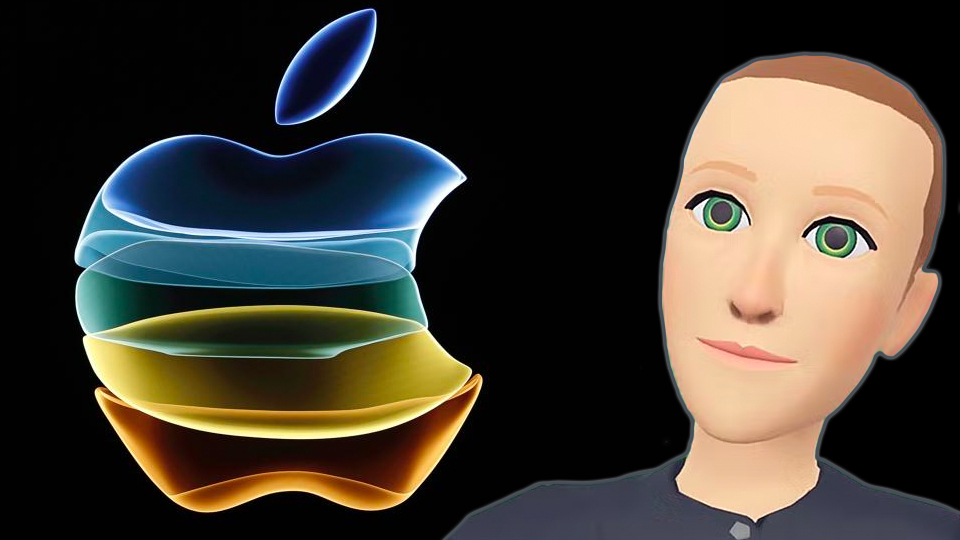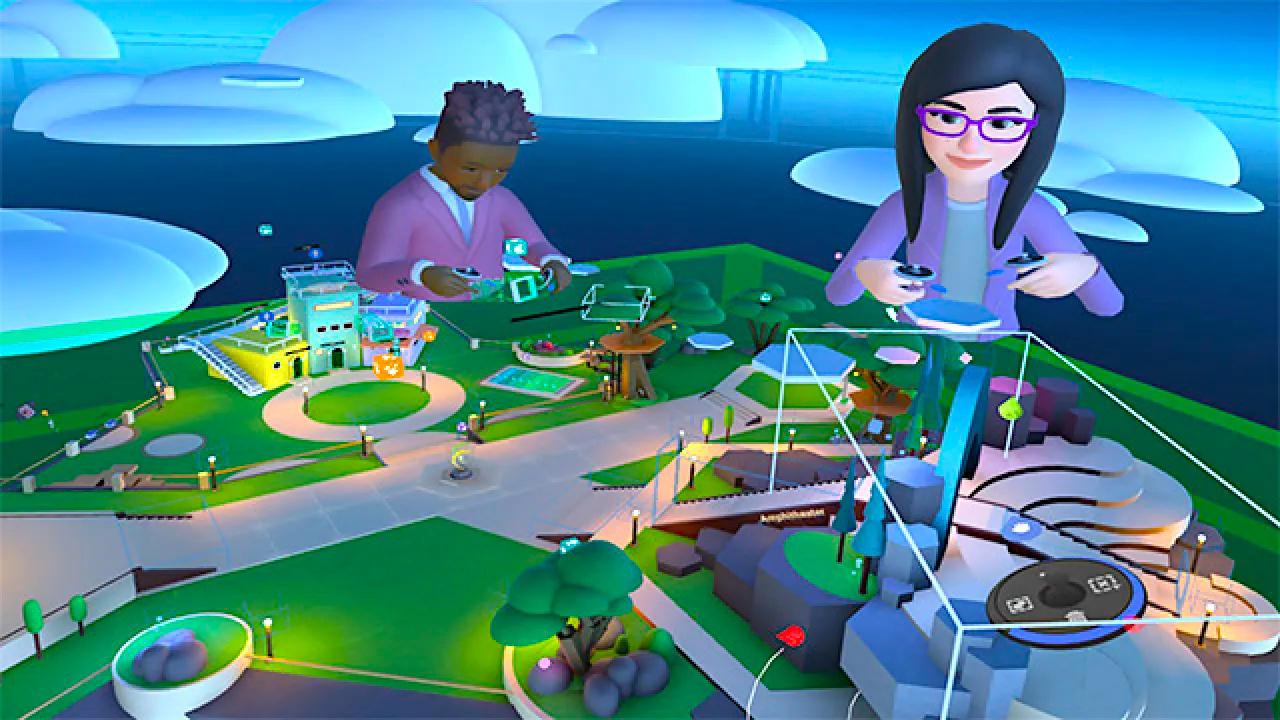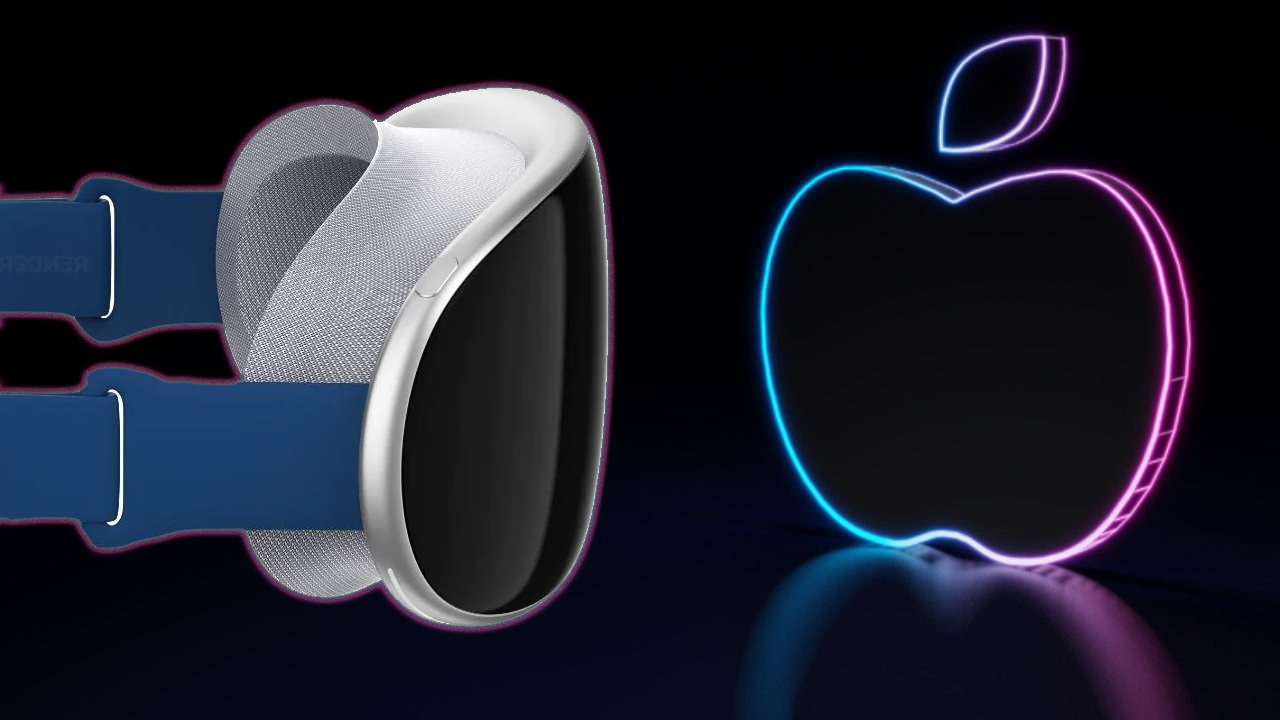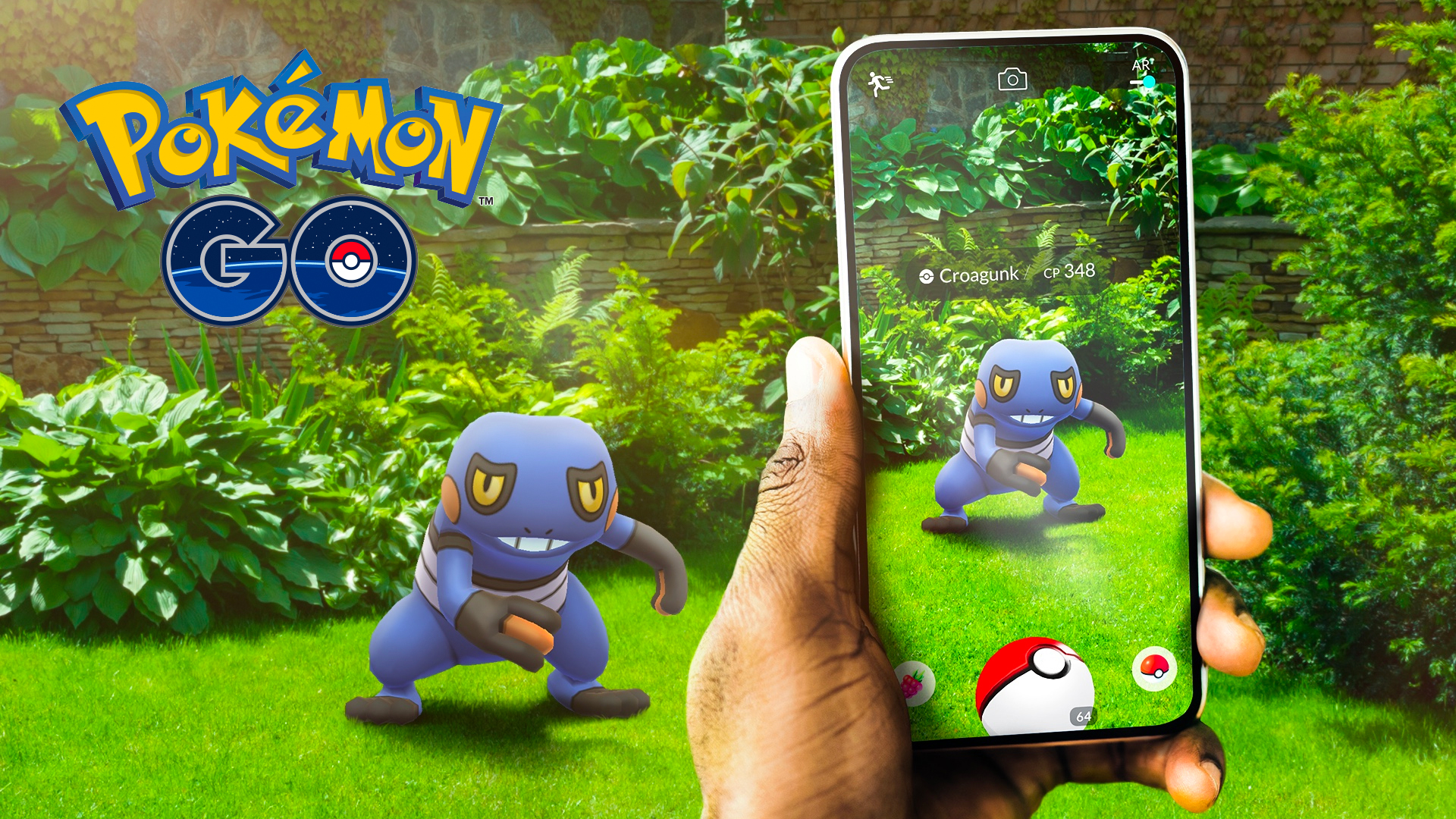No one cares about the metaverse. So what does that mean for Apple’s VR plans?
Apple’s mixed reality plans aren’t doomed – here’s why.

iMore offers spot-on advice and guidance from our team of experts, with decades of Apple device experience to lean on. Learn more with iMore!
You are now subscribed
Your newsletter sign-up was successful
The metaverse is a ghost town. After several years of hype, virtual spaces that were meant to be filled with users, concerts, offices, shops, games and even brands keen to part you from your virtual currency aren’t attracting enough interest or attention.
Sure, dedicated users continue to hang out and hover around in so-called metaverse platforms like Horizon Worlds, but the numbers don’t look promising.
Meta’s own metaverse division reportedly generated a loss of $4.3 billion in the fourth quarter. According to The Wall Street Journal, several brands, including Walmart and Disney, are shuttering their metaverse efforts. And the price of virtual real estate on platforms like Decentraland has decreased by a massive 90 per cent.
Rather than say “I told you so”, the more interesting conversation is how a lack of interest and investment in the metaverse may impact Apple’s plans for virtual reality and its Reality Pro VR headset.
What is the metaverse?
There’s no one agreed-upon definition of what the metaverse is – yet another reason it’s challenging to get people excited about it.

The word tends to be used when referring to virtual spaces where people can create life-like avatars and play or work or even shop with them.
Before Meta announced its metaverse plans back in 2021, several spaces that sort of sound like metaverse platforms already existed — think Fortnite and Roblox. Since then, others have cropped up, too, like Meta’s Horizon Worlds and Decentraland and Altspace VR.
iMore offers spot-on advice and guidance from our team of experts, with decades of Apple device experience to lean on. Learn more with iMore!
You can use a phone or computer to access some of these metaverse platforms, but others need a virtual reality headset to get in – or at least to use the spaces as you’re meant to experience them.
What are Apple’s VR plans?
There’s a difference between being fashionably late and showing up when the lights are off, the chairs are on the tables, and everyone’s gone home.
Apple is yet to unveil its highly-anticipated VR headset, which is likely to be called the Apple Reality Pro. Rumors suggest we may not have to wait long, and it could be announced at WWDC 2023 in June.
Apple is always late to the party, whether we’re talking about phones, watches or earbuds. So it’s no surprise it’s taking its sweet time with VR — it likes to enter a market when it's confident that its product is superior to the competition.
But there’s a difference between being fashionably late and showing up when the lights are off, the chairs are on the tables, and everyone’s gone home.
So, does Apple need to be worried about the fact people aren’t buying into the metaverse hype? Probably not, and here’s why.
The metaverse and VR are two (or many) different things
Many people talk about the metaverse and VR as if they’re the same thing.
But VR is a term used to describe the literal technology, a virtual reality headset like the Meta Quest or PSVR headset, as well as the things you can do and experience in VR, from games to educational apps.
The metaverse is a series of virtual worlds – or a yet-to-be-realized single virtual world; no one is quite sure – that can be accessed with a VR headset.
Simply put, you can do plenty of things with VR technology other than hovering around in a lame virtual office space.
This is important in the context of Apple. Yes, the company is set to launch a VR headset. But it’s unlikely to follow the same blueprint as Meta, at least in building a metaverse-like destination where people will work, play and buy things.
VR to enhance your life, not replace it
According to reports, Apple’s upcoming headset will focus on five categories of apps. A report from Bloomberg’s Mark Gurman (the oracle of all things Apple VR) explains these are likely to include gaming, fitness, collaboration tools, versions of the Apple iPad’s existing features and ways to watch sports.

It’s too early to say for sure, but it seems as if the experiences that Apple is focusing on will enhance things you already do with the help of VR rather than replace your IRL experiences with virtual ones – Meta’s playbook.
In fact, in an edition of Gurman’s Power On newsletter in early 2022, he suggested the term metaverse is “off limits” at Apple. The distinction Gurman draws is that Apple’s goal is to offer people shorter experiences, focusing on briefer periods of communication, content viewing and gaming.
So Apple’s headset isn’t something you’ll be wearing all day to do everything with. You’ll pick it up when you want it.
In another edition of Gurman’s newsletter in January 2023, he suggested that even elements of Apple’s VR offering that seem like Meta’s will do things differently.
For example, he explained that the new Apple headset could use FaceTime software, which will “realistically render a user’s face and full body in virtual reality.” He commented that this differs from the virtual meeting rooms offered by Meta because it could be more authentic, whereas Meta “creates a more cartoon-like avatar of the user.”
Apple is mixing realities
Perhaps the most critical distinction between Meta’s VR strategy and Apple’s is that Apple isn’t strictly creating a VR headset. Instead, it looks likely that it’ll feature mixed reality.
It might offer a virtual reality experience similar to the Meta Quest (like the Beatsaber game, 3D avatar chat, or virtual cinema rooms). However, it’ll also feature a secondary augmented reality offering that can overlay virtual assets on top of your real-world surroundings (think Minecraft Earth, Pokémon Go).

Although plenty of mixed reality headsets already exist – and Meta is working on its own too – none have been released with a mainstream audience in mind. This means it’s hard to say whether people will find a blend of VR and AR more appealing – we don’t know yet – but our instincts tell us it’ll be easier for people to buy into mixed reality than just virtual reality.
But there will be challenges
There are many reasons why recent reports that the metaverse is failing to deliver on its promises won’t affect Apple. But the company is still likely to have a challenge on its hands.
A mixed reality headset isn’t a straightforward proposition for most people – especially one rumored to cost an eye-watering $3,000. That’s why some think this upcoming product won’t be aimed at a mainstream audience but will instead be a high-end precursor to a more affordable and accessible headset further down the line.
We won’t know what Apple is planning until it’s officially announced – fingers crossed that it’ll be at WWDC 2023 in a few weeks. But based on the scraps of information we know so far, it seems there’ll be a difference between what Meta has done and what Apple plans to do with VR. Whether that looks like a completely different approach or a similar but better approach (which Apple is famous for) remains to be seen.
Granted, VR isn’t an easy sell. But we have every confidence that Apple knows how to make it appealing, just like it has done in every product category it’s arrived to fashionably late.

Becca Caddy is a contributor to iMore, as well as a freelance journalist and author. She’s been writing about consumer tech and popular science for more than a decade, covering all kinds of topics, including why robots have eyes and whether we’ll experience the overview effect one day. She’s particularly interested in VR/AR, wearables, digital health, space tech and chatting to experts and academics about the future. She’s contributed to TechRadar, T3, Wired, New Scientist, The Guardian, Inverse and many more. Her first book, Screen Time, came out in January 2021 with Bonnier Books. She loves science-fiction, brutalist architecture, and spending too much time floating through space in virtual reality. Last time she checked, she still holds a Guinness World Record alongside iMore Editor in Chief Gerald Lynch for playing the largest game of Tetris ever made, too.
